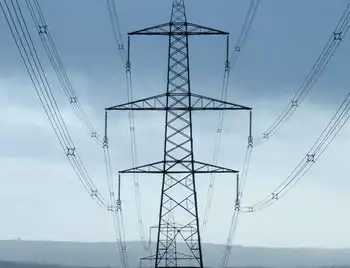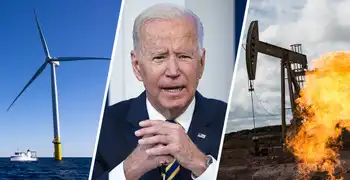Agency Sets Strict Market Power Standard, Asserts Control Over LNG Plants
- The Federal Energy Regulatory Commission has set aside its old system for calculating market power, creating a new test for determining a generating company's potential ability to dominate total electricity load in a given region. Under the new scheme, among several policy shifts announced by FERC just before Thanksgiving, large power companies would be subject to strict new standards designed to force them into regional transmission organizations (RTOs) and prevent market-power abuse.
If a power generator's total load exceeds the peak requirement in a given region, under the new test that generator would be said to hold market power. Such a company would then be forced to charge cost-based power rates -- unless it agrees to join an RTO -- rather than retain its previous ability to set "non-competitive" market-based prices.
Three large power companies were singled out by FERC as the most likely to be affected by the ruling: American Electric Power in Columbus, Ohio, Entergy in New Orleans, and Southern Co. in Atlanta. All three, FERC said, were found to have the ability to exercise market power in their control-area markets; therefore, they will be subject to strict new price controls within the region they traditionally dominate.
The order was seen as FERC Chairman Pat Wood's aggressive reaction to last summer's market meltdown in California, when spiraling prices, low supplies and intense political pressure forced federal regulators to adopt price controls. The order places similar restraints on large power companies designed to eliminate abuse and price gouging, while at the same time saving the cause of deregulation by pushing companies toward RTO formation.
Wood and others on the commission, notably Democrat William Massey, said the new test may save deregulation by applying strict new rules while forcing large companies into RTOs. Such grid-management organizations, Wood contends, will force market players to play by the same rules since RTOs would theoretically prevent both small and large power companies from charging excessive rates when power is needed most.
One commissioner, Linda Breathitt, resisted the order and ultimately voted against it. She argued the order had been "cobbled together" too quickly, without regard to industry dissent.
Homeland security and LNG jurisdiction Meantime, FERC effectively pre-empted a looming political battle over liquefied natural gas (LNG) import terminal jurisdiction when commissioners voted unanimously to uphold FERC's exclusive right to oversee the siting, construction and operation of LNG infrastructure (portions of this story ran in the 11/21 Greenwire).
The decision comes amid increasing political pressure from lawmakers and security officials in the Bush administration who may consider spreading LNG oversight among several agencies, including the Federal Bureau of Investigation, Office of Homeland Security and Coast Guard.
Last week's LNG ruling did not directly address the pending fight over federal security oversight, but commissioners signaled Capitol Hill that they interpret the 1992 Energy Policy Act as granting FERC exclusive jurisdiction over LNG stations. Responding to a petition submitted by Dynegy, FERC cautioned that a "regulatory gap" would be created if the commission relinquished jurisdiction.
Wood, a Republican and Bush appointee, characterized the decision as the right call in light of the new security concerns surrounding LNG tankers and terminals. Wood said that if FERC gave up oversight authority, the LNG industry would be left free to operate as it pleased since no states have jurisdiction over import terminals.
Dynegy, eager to convert a petroleum terminal in Hackberry, La., to an LNG import and regasification plant, had argued that an amended section of the energy law undercut FERC's jurisdiction to deny new LNG construction permits. Dynegy claimed FERC had no authority to oversee LNG imports under the amended section, giving it free reign to build and operate a new terminal, but commissioners turned that argument aside.
As with all FERC rulings, Dynegy reserves the right to appeal the decision to a federal appeals court. The company did not return calls seeking comment.
LNG background LNG tankers and the four onshore processing facilities in the United States are now seen as potential terrorist targets, prompting some in Congress and elsewhere to argue for rigorous oversight. Two cases bear this out: The Coast Guard on Sept. 26 banned LNG shipments into Boston Harbor to protect against terrorist attack, while Sen. Barbara Mikulski (D-Md.) has turned up the heat on federal regulators for their preliminary decision to reopen the Cove Point, Md., LNG shipping facility, less than four miles from the Calvert Cliffs nuclear power station on the Chesapeake Bay.
Mikulski has officially petitioned FERC to reconsider its Oct. 11 decision to restart the mothballed Cove Point station. Mikulski contends the plant, closed down 20 years ago after a fatal explosion, would threaten national security on a number of fronts, necessitating the FBI, Coast Guard and Homeland Security's participation in security deliberations.
The Sept. 26 Boston Harbor ban was lifted in mid-October, but not before rigorous background checks for foreign crews and vessels were implemented by the Coast Guard and the port authority, MassPort (see the 10/19 and 11/20 editions of Greenwire).
In both cases, concerned officials have pointed to LNG shipments from Persian Gulf and Islamic nations as the primary threat to heavily populated harbor areas. Because the leading LNG suppliers to the United States include such countries as Qatar, Algeria, Nigeria, Oman, Indonesia and the United Arab Emirates, Mikulski says such activity should be overseen by the FBI, Coast Guard, Homeland Security and Nuclear Regulatory Commission, with more rigorous security reviews either mandated or enforced by regulators.
It is not yet clear how Homeland Security Director Tom Ridge will respond, but a Mikulski aide said Ridge has assembled a team to look at the Cove Point matter specifically and, more broadly, energy infrastructure vulnerability.
FERC has until Dec. 13 to decide on the Cove Point rehearing request. The commission has held closed-door meetings with Williams, Cove Point's owner and operator, but officials refused to discuss what progress might have been made. Industry officials maintain the LNG threat has been overblown.
The proposed $103 million expansion at Cove Point would make it the largest LNG import facility in the United States, surpassing other LNG stations in Elba Island, Ga.; Lake Charles, La.; and Everett, Mass.
Related News

Learn how fees and usage impacts your electricity bill in new online CER tool
OTTAWA - Canadians have a new way to assess their electricity bill in a new, interactive online report released by the Canada Energy Regulator (CER).
The report titled What is in a residential electricity bill? features a province-to-province comparison of electricity bills, generation and consumption. It also explains electricity prices across the country allowing people to understand why costs vary depending on location, fees, regulation and taxes.
Learn how fees and usage impacts your electricity bill in new online CER tool
Interactive tools allow people to calculate the cost of household appliances and electronic use for each province and territory. For…




